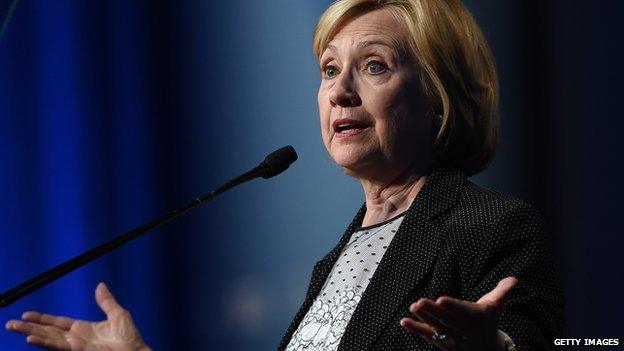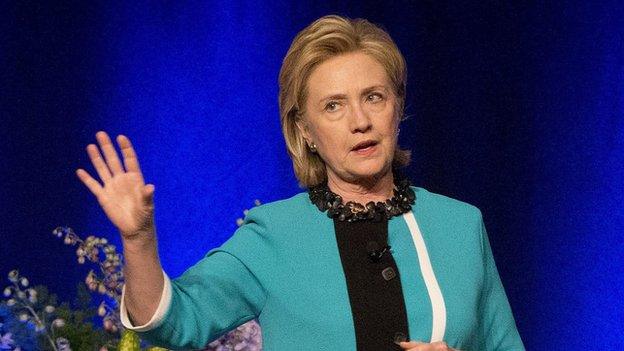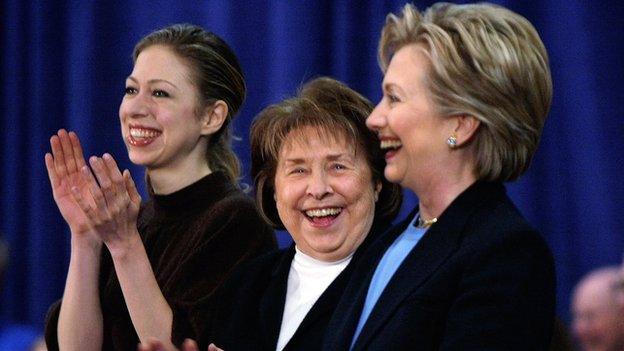Hillary Clinton's approval bubble has popped
- Published
- comments

A recent NBC/Wall Street Journal poll, external is providing a reality check for Hillary Clinton, who previously boasted robust public approval ratings.
According to the survey, 43% of registered voters have a positive view of the former secretary of state and first lady, while 41% have a negative opinion.
That marks a considerable decline from her February 2009 numbers, as she began her four-year stint as secretary of state. Then she recorded 59% positive to 22% negative.
The Wall Street Journal's Patrick O'Connor says this trend is a result of Mrs Clinton's being increasingly seen through the lens of partisan politics, as she mulls a bid for the presidency in 2016.
"The more Hillary Clinton looks like a candidate, the less invincible she appears," he writes.
A closer look at the numbers indicates that the bulk of Mrs Clinton's decline can be attributed to Republicans whose views of her have dimmed. Her disapproval rating among conservatives has jumped from 52% in 2009 to 70% today.
It's all about one's frame of reference. When compared to President Barack Obama, Mrs Clinton may seem appealing to conservatives. But standing on her own, as a potential standard-bearer for the Democrats, she takes on all the political baggage and negative connotations of her party.
Back in late June, when Mrs Clinton's poll numbers first began to show some weakness, the New York Times's Brendan Nyhan made note, external of this phenomenon.
"Mrs Clinton's re-entry on the political stage over the last few weeks is turning her back into what she was before her stint as secretary of state: an intensely polarising political figure," he wrote.
He compared her situation to that of a once-popular Republican as he contemplated a presidential bid in 2008, John McCain. He was admired by many Democrats when he was criticising his own party and staying above the partisan fray. But once he was perceived as a political threat, the gloves came off.
"We tend to overrate the importance of candidate image, which is largely a function of the flow of partisan messages," he wrote. "When opposition elites withhold criticism during, say, a presidential honeymoon or a foreign policy crisis, politicians can seem unstoppable, but when normal politics resume, their images - and their poll numbers - quickly return to earth."
Mrs Clinton's potential Republican opponents should refrain from taking too much joy at the survey results, however. Leading contenders like former GOP nominee Mitt Romney, former Florida Governor Jeb Bush and Kentucky Senator Rand Paul all have net-negative approval numbers.
Florida Senator Marco Rubio comes the closest to positive among the minority of respondents who have an opinion of him, with a 21%-21% split.
Although Mrs Clinton's popularity drop may have been entirely predictable, it still presents a threat to the former first lady's political ambitions. Part of her appeal to Democratic voters has been predicated on what a formidable opponent she would be in 2016.
That may still be the case, but it's getting harder to point to survey statistics to back that up.
- Published19 June 2014

- Published12 May 2014
